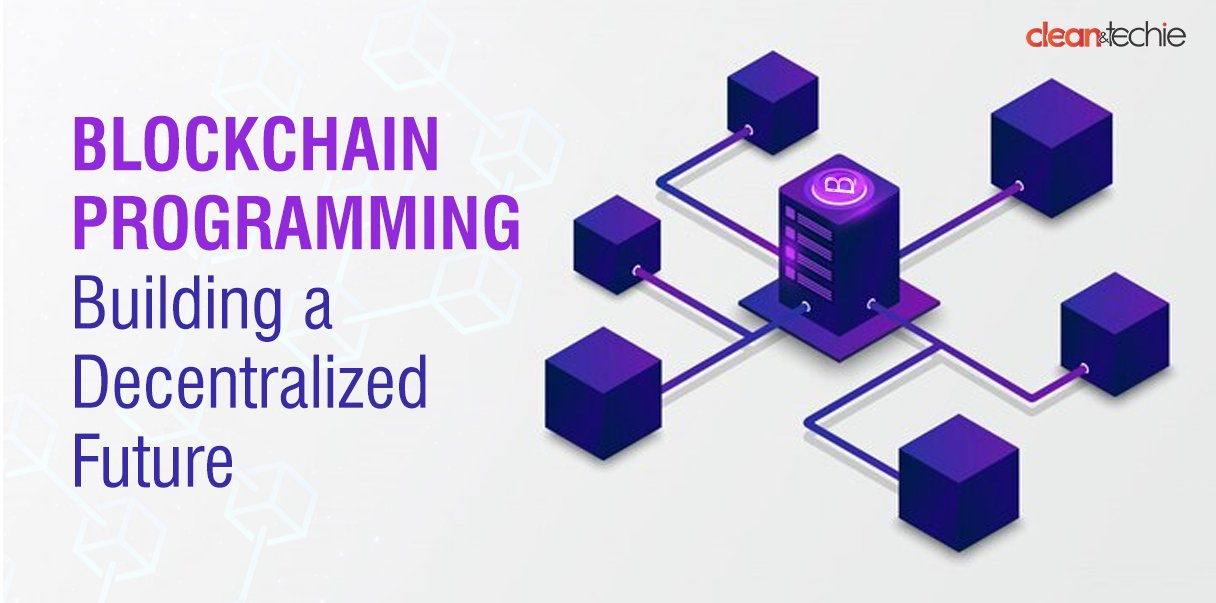Blockchain programming is an integral part of blockchain technology. It was once primarily associated with cryptocurrencies, is now making the heads turn across various industries..
What is Blockchain Technology
Blockchain is a ledger that records transactions that include more than one computer. It is decentralized, and immutable. This revolutionary technology has the potential to transform various industries by enhancing security, transparency, and efficiency. From finance and healthcare to supply chain management and voting systems, blockchain offers new possibilities for conducting business, interacting with institutions, and managing personal data.
Moreover, Diffusion models can be directly applied to blockchain programming to improve the efficiency and security of consensus mechanisms and smart contracts.
What is Blockchain Programming
Blockchain programming is a specialized field of software development that involves creating applications and systems using blockchain technology. This innovative technology provides a decentralized, immutable, and transparent ledger for recording and verifying transactions across multiple computers.
It can be used in many different ways, such as with cryptocurrencies and real estate.By leveraging the unique characteristics of blockchain technology, developers can create innovative solutions that enhance security, transparency, and efficiency.
Here are the three key aspects of Blockchain Programming:
Decentralization:
Blockchain is a decentralized system where data is distributed across a network of computers. This decentralized architecture makes the system resistant to censorship and manipulation and ensures that no single entity has complete control over the network. This distributed approach promotes fairness and transparency, as network participants collectively make decisions rather than a central authority.
Immutability:
Blockchain technology is immutable, meaning that once a transaction is recorded, it is permeant and neither be deleted nor amended. This property ensures the integrity and security of the data, preventing fraudulent activities and tampering. As a result, blockchain offers high trust and reliability, making it suitable for applications that require tamper-proof records.
Transparency
Blockchain technology ensures transparency by making all transactions publicly visible. This openness promotes trust and accountability, as anyone can verify the authenticity and validity of transactions. By examining the public ledger, individuals can ensure that transactions are legitimate and comply with established rules. This transparency helps to prevent fraud and build trust within the blockchain ecosystem.
Real-World Applications:
Supply Chain Management:
Blockchain can enhance the supply chain performance with transparency and efficiency. By tracking products from their origin to the consumer, businesses can reduce fraud, improve quality control, and ensure ethical sourcing. For instance, Walmart has implemented blockchain technology to trace the journey of its leafy greens, ensuring food safety and traceability.
Healthcare:
The healthcare industry is grappling with issues such as data privacy and interoperability. Blockchain can provide a secure and decentralized platform for storing and sharing patient records. This can improve patient outcomes, reduce administrative costs, and facilitate research.
Financial Services:
Blockchain has the potential to revolutionize traditional banking and financial services. Smart contracts, self-executing contracts with terms directly written into code, can automate processes like lending, insurance, and securities trading. This can reduce transaction costs, increase efficiency, and enhance transparency.
Voting Systems:
Blockchain can enhance the security and integrity of voting systems. By providing a decentralized and immutable record of votes, it can reduce the risk of fraud and increase public trust in elections.
The Future of Blockchain Programming:
Enhanced scalability:
Enhanced scalability is a key future of Blockchain programming. It aims to increase the number of transactions a blockchain can handle per second, making it more efficient and suitable for real-world applications like finance and supply chain management.
Increased interoperability:
Increased interoperability is a key trend in Blockchain Programming. This means that different blockchains will be able to communicate and interact with each other more seamlessly. Developing a more efficient, interconnected digital ecosystem will increase the chances of success.
Integration with AI:
AI-powered blockchain can revolutionize industries by automating tasks, improving security, and enabling more complex applications, such as decentralized finance and supply chain management.
Conclusion
Blockchain programming offers a world of possibilities for developers seeking to create innovative and impactful applications. With its decentralized, immutable, and transparent nature, blockchain technology provides a solid foundation for building solutions that can revolutionize industries. By staying up-to-date on the latest advancements in blockchain, you can position yourself as a pioneer in this rapidly growing field and contribute to shaping the future of decentralized systems.




